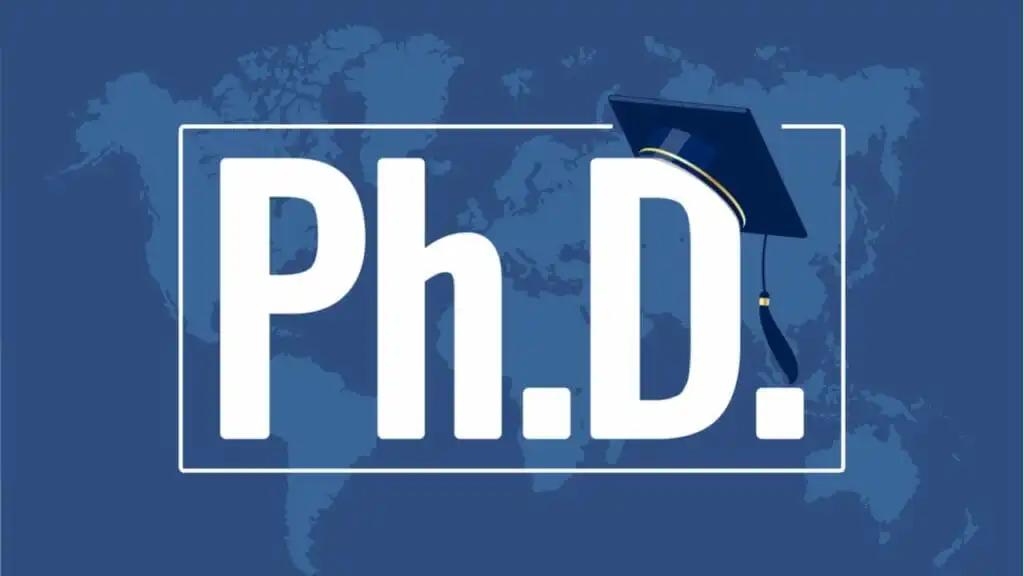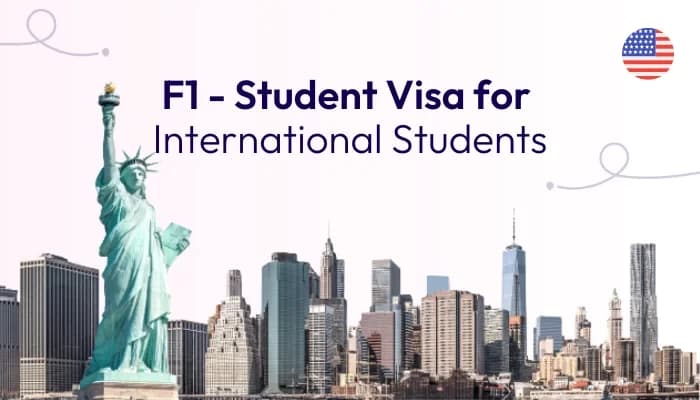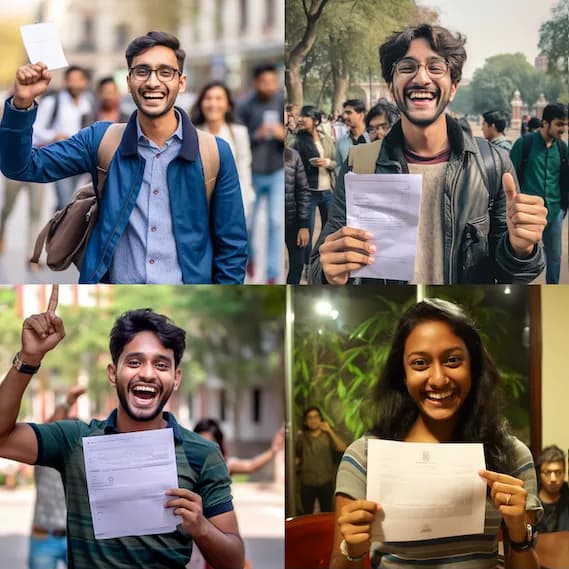F1 Visa Interview Questions For PHD Students

Key Highlights
- Explain why a PhD is essential for your career and how it aligns with your long-term goals.
- Discuss your motivation for pursuing a PhD over immediate employment and how it contributes to your field.
- Show how your PhD research will address significant issues in your field, with real-world applications.
- Mention your academic and research plans, including specific methodologies and skills you aim to develop.
- Highlight your financial preparation, including scholarships and funding sources for your studies.
Introduction
Are you a Nepali student preparing for your F1 visa interview for a PhD in the USA? Feeling a bit overwhelmed? Don’t worry—you’re not alone! Navigating the F1 visa interview can be difficult, but with the right preparation, you'll be ready to ace it. Whether you're passionate about Computer Science or another field, pursuing a PhD is a significant commitment, and your interview is the perfect chance to showcase why you're ready for this journey.
In this guide, we’ll dive into the top F1 visa interview questions specifically for PhD applicants, helping you prepare answers that demonstrate your readiness, ambition, and long-term goals. From explaining why you chose to pursue a PhD in the USA to highlighting your research focus, we’ll cover everything you need to know to impress the visa officer.
Top F1 Visa Interview Questions Answers With Tips For PHD Students
Here are top 20 unique questions and answers that delve deeper into your motivations and goals regarding pursuing a PhD. These responses will help you convey your commitment and aspirations during the F1 visa interview.
1. Why do you believe a PhD is essential for your career?
Sample Answer: “I believe a PhD is crucial for my career because it equips me with the specialized knowledge and research skills needed to address complex environmental challenges. With a doctoral degree, I can contribute significantly to policy-making and sustainable practices, which are essential in combating climate change. The depth of research experience will also enable me to lead projects that can make a real difference.”
Reasoning: This answer highlights your understanding of the PhD's importance and how it directly relates to your career goals. It shows the visa officer that you have a clear vision of your future and the role a PhD will play in it.
Tip: Think of a PhD as your golden ticket—one that unlocks doors to endless opportunities!
2. What inspired you to pursue a PhD instead of entering the workforce immediately?
Sample Answer: “My passion for research and my desire to make a significant impact in my field inspired me to pursue a PhD rather than jump straight into the workforce. I’ve always believed that a strong foundation in research is necessary to create innovative solutions. I want to be at the forefront of new discoveries that can lead to sustainable practices in Nepal.”
Reasoning: This response emphasizes your passion for research and a commitment to long-term goals, showcasing that you’re not just looking for immediate employment but are focused on making meaningful contributions.
Tip: Think of your PhD journey like planting a seed—it takes time, but the results can be breathtaking!
3. How will your PhD research contribute to your field?
Sample Answer: “My research will focus on developing sustainable agricultural practices that can be implemented in Nepal to combat soil degradation and improve food security. By applying cutting-edge techniques and collaborating with local farmers, I hope to create a model that can be replicated in similar regions globally, thereby contributing to both local and global food sustainability.”
Reasoning: This answer demonstrates the real-world applicability of your research and shows how it addresses pressing issues in your field, making it relevant and impactful.
Tip: Make your research sound like a superhero’s mission—ready to save the day!
4. What do you hope to learn during your PhD program?
Sample Answer: “I hope to gain a deep understanding of advanced research methodologies and data analysis techniques that are crucial for environmental research. Additionally, I want to learn how to effectively communicate my findings to various stakeholders, including policymakers and the public, to ensure that my research has a tangible impact.”
Reasoning: This response indicates your eagerness to learn and grow, highlighting that you are not only focused on your research but also on effective communication and application of your findings.
Tip: Learning is like cooking—you need the right ingredients to whip up a masterpiece!
5. How do you plan to balance your research and personal life during your PhD?
Sample Answer: “I plan to maintain a healthy balance by prioritizing my time effectively and setting clear boundaries between work and personal life. I believe that engaging in hobbies, such as hiking and photography, will help me recharge and keep my creativity flowing. Additionally, I will seek support from my peers and mentors to share the workload and reduce stress.”
Reasoning: This answer shows the visa officer that you are proactive about maintaining mental health and well-being, which is important for a successful academic career.
Tip: Balance is key—like a seesaw, it only works if both sides are equal!
6. What specific skills do you aim to develop during your PhD studies?
Sample Answer: “I aim to develop advanced analytical skills, particularly in statistical modeling and data interpretation, which are essential for environmental research. Additionally, I want to improve my leadership and collaboration skills through group projects and seminars, as these will be vital for my future roles in academia and policy-making.”
Reasoning: This answer reflects your understanding of the skills necessary for your field, demonstrating foresight and ambition, which are attractive traits to visa officers.
Tip: Building skills is like stacking blocks—one layer at a time until you reach new heights!
7. How do you plan to stay connected with your home country while studying in the USA?
Sample Answer: “I plan to stay connected with Nepal by engaging with local environmental organizations through virtual collaborations and participating in online forums. Additionally, I intend to share my research findings with Nepali communities and encourage discussions on sustainability practices that can be adopted back home.”
Reasoning: This answer emphasizes your commitment to your home country and how you plan to use your education to benefit Nepal, which can positively influence the visa officer's perception.
Tip: Stay connected like Wi-Fi—reliable and always there when you need it!
8. Why do you want to study in the USA?
Sample Answer: “I want to study in the USA because it is home to some of the world’s top universities that offer advanced research opportunities in my field. The chance to learn from leading experts and collaborate with diverse students will greatly enhance my academic and personal growth.”
Reasoning: This shows that you're aiming for quality education and have a clear reason for choosing the USA.
Tip: Think of the USA like the Hogwarts of education—full of magical opportunities, but don’t forget to explain why you want to go to that specific castle!
9. Why did you choose this specific PhD program?
Sample Answer: “I chose this PhD program because it focuses on renewable energy, which aligns perfectly with my research interests. The faculty’s expertise in this area is also a significant attraction.”
Reasoning: Your research demonstrates a strong alignment with your academic goals, which reassures the visa officer that you are well-informed and committed.
Tip: Talk about your program like it’s your favorite pizza—make it clear why this one has all the toppings you love!
10. How do you plan to finance your studies?
Sample Answer: “I have secured a scholarship that covers my tuition and living expenses. Additionally, my family will support me financially during my studies.”
Reasoning: Financial stability is crucial, and this answer shows that you have a solid plan, easing concerns about funding.
Tip: Don’t leave them guessing about your finances—clear money talk is as reassuring as finding a dollar in your pocket!
11. What are your plans after completing your PhD?
Sample Answer: “After my PhD, I plan to return to Nepal to work with the government on environmental policy. I want to apply what I've learned to improve sustainable practices in my country.”
Reasoning: This indicates that you plan to return home after your studies, a major concern for visa officers.
Tip: Make your future plans sound like a superhero’s mission—clear, focused, and all about saving the world (or at least your country)!
12. What are the major milestones of your PhD, and how will they help you achieve your goals?
Sample Answer: “The major milestones of my PhD include completing my coursework within the first two years, publishing peer-reviewed articles by year three, and presenting my research at international conferences. These steps will not only deepen my expertise but also allow me to build connections with experts in my field, laying the groundwork for future collaboration.”
Reasoning: Highlighting a clear academic plan reassures the officer that you are organized and committed to achieving specific goals within a defined timeframe.
Tip: Break down your PhD timeline into clear, actionable milestones to demonstrate a structured approach.
13. How do you plan to support yourself financially during your PhD?
Sample Answer: “I have been awarded a full scholarship by the university, which covers tuition, living expenses, and research funding. Additionally, I plan to apply for research assistantships to gain experience while also supporting myself financially.”
Reasoning: This assures the visa officer that you have secured financial stability, reducing the risk of being denied a visa for financial reasons.
Tip: Mention specific scholarships, grants, or assistantships that provide a stable financial foundation, as it gives the officer confidence in your planning.
14. What motivated you to choose the USA for your PhD over other countries?
Sample Answer: “The USA has a leading reputation in scientific research, with well-equipped laboratories and access to cutting-edge technologies that are crucial for my research in renewable energy. Additionally, American universities offer a collaborative environment where I can engage with experts from various fields, which is essential for interdisciplinary research.”
Reasoning: This shows that you’ve carefully considered why the USA is the best fit for your PhD studies, emphasizing not only academic reputation but also the collaborative research environment.
Tip: Focus on specific aspects of the U.S. academic environment that are not easily available elsewhere, like cutting-edge resources or interdisciplinary research opportunities.
15. What research do you plan to conduct during your PhD?
Sample Answer: “I plan to investigate the impact of solar energy on local ecosystems, aiming to develop best practices for implementation that minimize ecological disruption.”
Reasoning: This gives the visa officer a clear understanding of your research focus and its potential impact, showing that your PhD has practical applications.
Tip: Describe your research like a mystery novel—complex, exciting, and with a solution that saves the day!
16. How will your studies benefit your home country?
Sample Answer: “My studies will equip me with the knowledge and skills to advocate for sustainable energy policies in Nepal, helping us transition to greener practices and combat climate change.”
Reasoning: This answer shows how you plan to give back to your home country, making it clear that your education will have a positive impact beyond your personal growth.
Tip: Your plans should sound like you’re bringing home the treasure after a grand adventure—everyone wins!
17. Why do you need a PhD to achieve your goals?
Sample Answer: “A PhD will give me the in-depth knowledge and research capabilities I need to solve the complex environmental challenges Nepal faces. Without a PhD, I wouldn’t have the tools necessary to make the scientific breakthroughs that our country needs.”
Reasoning: This answer shows that you have a clear need for a PhD, reinforcing its importance for achieving your goals.
Tip: Show how a PhD is the missing piece of your puzzle—without it, the picture’s incomplete!
18. How do you plan to balance live your during your PhD?
Sample Answer: “I plan to maintain a healthy balance by prioritizing my time effectively and setting clear boundaries between work and personal life. Engaging in hobbies like hiking will help me recharge.”
Reasoning: This shows maturity and self-awareness, qualities that visa officers will appreciate, indicating you're prepared for the challenges of a PhD program.
Tip: Balance is key—like a seesaw, it only works if both sides are equal!
19. What are the long-term goals of your PhD research?
Sample Answer: “My long-term goal is to create a model for renewable energy implementation that can be adapted to other developing countries, helping them reduce their carbon footprint while ensuring sustainable growth.”
Reasoning: This answer demonstrates a vision beyond personal success, highlighting how your research will have global relevance.
Tip: Think big—like a scientist with a cape, ready to save the planet one research paper at a time!
20. How will you ensure your research remains relevant and impactful?
Sample Answer: “I will stay updated with the latest research trends and collaborate with industry experts to ensure my work addresses current issues and offers practical solutions.”
Reasoning: This shows that you’re committed to keeping your research dynamic and valuable, which is appealing to both universities and visa officers.
Tip: Stay connected like Wi-Fi—reliable and always there when you need it!
Conclusion
Navigating the F1 visa interview can be daunting, but with these questions and answers in your toolkit, you’ll be well-prepared to face the panel. Remember, your enthusiasm and genuine interest in your field are your best assets. Approach the interview with confidence and a positive attitude, and you’ll be well on your way to achieving your dream of studying in the USA!
And remember, the journey may be long, but the destination is worth it—like hiking to the top of a mountain for that breathtaking view! Good luck!
Have Questions About This Topic?
Join our community to get personalized advice and share experiences with others going through similar visa processes.





